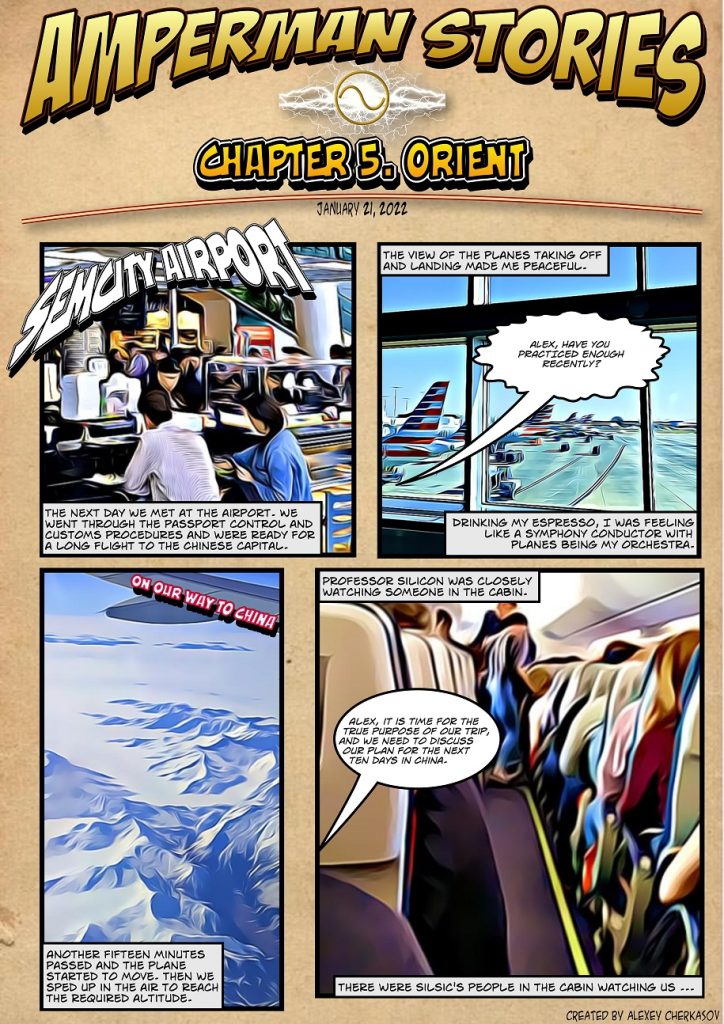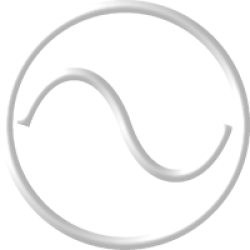The next couple of weeks I was busy with preparations for our trip to China. I had to build our route from Beijing to Hong Kong and add several companies to visit which could be interested in TSemics’ power semiconductors.
Professor told me that we needed at least ten days in China for investigation, and one of the cities to be included in our trip was Shanghai. We would have to make a stop there as well. Professor Silicon mentioned some of his friends we would meet in Pudong.
Pudong is a district of Shanghai located east of the Huangpu River across from the historic city center of Shanghai in Puxi. The name refers to its historic position as “The East Bank” of the Huangpu River, which flows through central Shanghai, although it is now administered as the Pudong New Area, a state-level new area that extends all the way to the East China Sea. The traditional area of Pudong is now home to the Finance and Trade Zone and the Shanghai Stock Exchange, and many of Shanghai’s best-known buildings, such as the Oriental Pearl Tower.
I went through all my notes and TSemics’ CRM to select the right companies I was in contact with. After several days of negotiations, I succeeded to arrange meetings with enough companies to finally map out our oriental route. All of the potential customers were interested in TSemics’ power semiconductor portfolio since no one ever heard of our brand before. They used to buy local brands or semiconductors imported from other countries. And they always wanted to have a backup plan in case of any problems with one of the suppliers.

So, there I was sitting in my office with Google Maps in front of me on my display with tags and directions. We were heading to Beijing, after that going to Tianjin, then to Nanjing, and finally, arriving in Shanghai. Beijing to Shanghai route we would take by high-speed trains.
From Shanghai, we had to fly to Xiangyang to have a meeting with a potential customer interested in high power thyristors for their new series of soft-starters they planned to launch next year. Then we would take another train from Xiangyang to Wuhan. In Wuhan, we would have another meeting, and after that, we would take a Wuhan–Guangzhou high-speed railway. This is a thousand kilometers route that takes only three hours and is the most convenient way to get from Wuhan to Guangzhou. The line is part of the 2230-km long Beijing–Guangzhou–Shenzhen–Hong Kong high-speed railway. After we arrive in Guangzhou, it would take only an hour or so to get to our final destination – Hong Kong.
It was something close to a five thousand kilometers trip for us with Professor Silicon to enjoy our adventures in China. The plan was ready, all of the meetings were arranged, and now we only had to take care of our visas, tickets, and hotels. It took another week for us to apply for a Chinese visa and finalize other arrangements. And by the end of the second week after our last meeting, everything and everyone was ready to go.
The next day we met at the airport. Lextor Anderson was shining like a diamond in a jewelry store. We went through the passport control and customs procedures and were ready for a long flight to the Chinese capital. Since we still had some spare time before the boarding began, we decided to go to the duty-free café for a sip of freshly brewed coffee.
The café was small but cozy. And it had a marvelous view of the airstrip. It has been a long time since my last and only flight. The view of the planes taking off and landing made me peaceful. Drinking my espresso, I was feeling like a symphony conductor with planes being my orchestra. At the same moment, my phantasy was interrupted by Professor with the question I was expecting and a bit afraid of.
He asked whether I was practicing enough and what the results were. It was crucial for me to concentrate on my abilities to make a progress, otherwise, I was just wasting my and Professor Silicon’s time. Lextor was very unhappy to hear that for the past two weeks I did not do anything at all to improve the situation. He did not expect me to take this matter in such a childish way. For the first time, I saw him change his smiling face to a very serious expression.
He looked like he was thinking something over. Based on a look on his face I could say that his mind was at some other place. I tried to ask him about our plan for this trip but he did not answer. It was like he was meditating or sleeping with his eyes open. Then the announcement in the airport made it clear that we have five more minutes before boarding, and we still had a long way to go to our gate. I tried to bring Professor to his senses, and again it was no luck at all.
And then he suddenly moved and his face was smiling again. He said that everything was ok and I should not worry about those two weeks I missed. The trip to China will help me to catch up and keep on with the schedule. Then he got up and said that we need to hurry to make it to the boarding. Turned out he was conscious all the time and heard everything I said and everything around.
In fifteen minutes, we were sitting in a double-decker Boeing 747-400 mainly packed with Chinese people flying back home from their business trips or vacations. I took the window sit close to the wing. It took another half an hour for more than four hundred people to get on board and accommodate. With more people coming it got very noisy inside and started to look like a huge restaurant with limited seats. Though it was fun to watch all those people eager to get back home. They were talking, laughing, exchanging stories and their travel experience.
Another fifteen minutes passed and the plane started to move. In ten minutes, we were ready to take off. Our Boeing reached almost 300 km/h before we finally took off. Then we sped up in the air to reach the required altitude. Some of the passengers were already sleeping or pretending to sleep, but many of them were still talking and having fun. Professor told me that the flight will be long enough for us to have some rest and then we could discuss our plan.
He opened his briefcase and pulled an old book with no title on it. It looked very antique. When he opened it, I could see a very beautiful tiny font. It was something between Chinese hieroglyphs and Arabic script. And that is when I realized that we were going to the country where to communicate you need to know Chinese. You will be very lucky to meet people who could understand your English.
Professor noticed my puzzled expression and, as if he could read my mind, he told me that everything was fine. He knew little Chinese and Cantonese. And was another surprise for me. I wondered how many more discoveries were waiting for me in the future. Professor Silicon seemed to be an unlimited resource of knowledge. He inspired me to be a better version of myself, and I promised myself that I would do everything depending on me to finally unleash my powers.
And for now, I wanted to keep up with the latest news in the power semiconductors industry, so I pulled a couple of the magazines I was subscribed to, and decided to go through several articled dedicated to diodes, thyristors, MOSFETs, and IGBT modules. Many companies were working on expanding their power semiconductor portfolio with HV power thyristors with blocking voltage up to 10kV. Some were working on new technology to provide cheaper IGBT solutions with the same or even better level of quality.
In the market news section, there was an interview with Drayton Dense, CEO of SilSic Corp. A big photo of his loathsome face was in the center of the page. The interview title said, “When Sharks Are Hungry. SilSic Swallows Another Semiconductor Fish”. Drayton Dense was bragging how they managed to buy another manufacturer of power semiconductors, and that it was just a ‘rehearsal’ before the true ‘performance’.
Same time Professor Silicon was closely watching someone in the cabin. When he saw that I was reading about the SilSic, Professor leaned closer to me and said that we had been followed. According to him, there were two people who worked for SilSic Corp. who had been following him since this morning. First, he saw them close to the lab territory, then in the airport when we were passing the customs procedures, and now he was sure that he had just seen one of them in the cabin.
Professor told me that it was time for the true purpose of our trip, and we had to discuss our plan for the next ten days in China.

